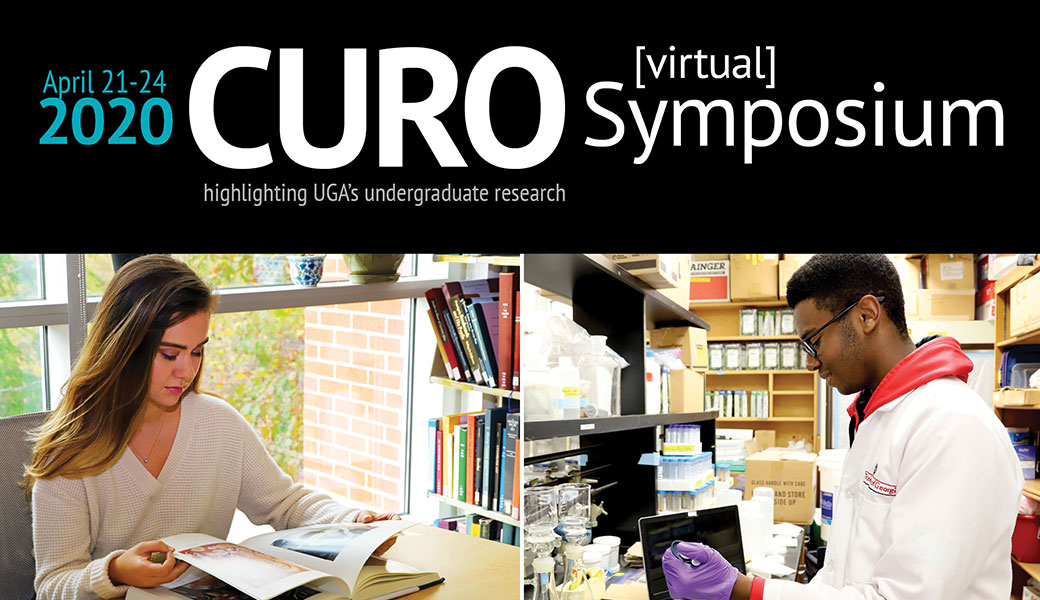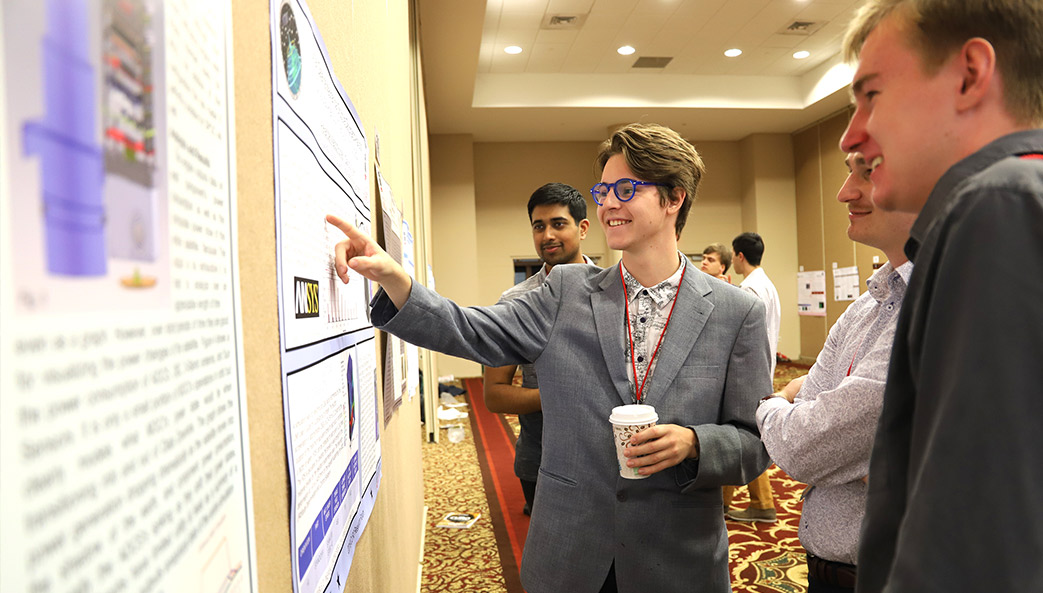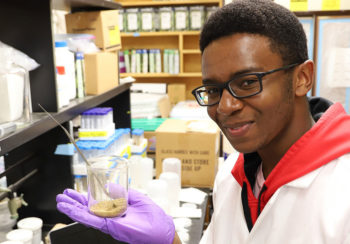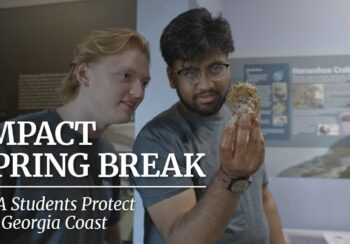With the University of Georgia campus closed due to the COVID-19 pandemic, undergraduates shared their research endeavors in a new way this spring during the 2020 Virtual CURO Symposium held April 21-24.
After mentoring from faculty members across various UGA colleges, students shared a total of 580 posters and oral presentations using UGA’s eLearning Commons. Student presenters, faculty members and anyone who requested access were able to asynchronously give students feedback on their research through discussion boards.
“This year, more than ever, students have shown their potential, resilience, creativity and academic strength by engaging with their mentors and adapting their projects to finalize their research and presentations under circumstances and environments unlike what we have experienced before,” said Maria Navarro, associate director of the Honors Program and CURO.
Hosted by the Center for Undergraduate Research Opportunities, the symposium is open for any undergraduate pursuing faculty-mentored research in any discipline. Presentations ranged from research on automated investment platforms to the morality of fast fashion.
“By developing oral and poster presentations to be given online and offering feedback to fellow researchers in a virtual setting, our students are learning to use new technologies and demonstrating tremendous adaptability,” said UGA President Jere W. Morehead in his symposium welcome letter.
Junior Courtney Cameron, an agriscience and environmental systems major and CURO Honors Scholar, said participating in undergraduate research allows students to apply concepts and theories outside of the classroom and develop professionally by building communication skills.
“To conduct my own research as an undergraduate is unreal. I know that I am making an impact on people, especially Georgians,” said Cameron, whose research focused on the Xylella fastidiosa bacterium from peach trees in central Georgia. “To do it at such a young age and to be provided the resources to do so speaks to the character of our university. Over the years, it has taught me that whatever your research is, do it with a passion and a knowledge of why you are doing something.”
Regan Lohlein, a junior biology major, said the symposium is beneficial because it requires students to condense their research into succinct presentations, a skill that will help her as she applies to medical school.
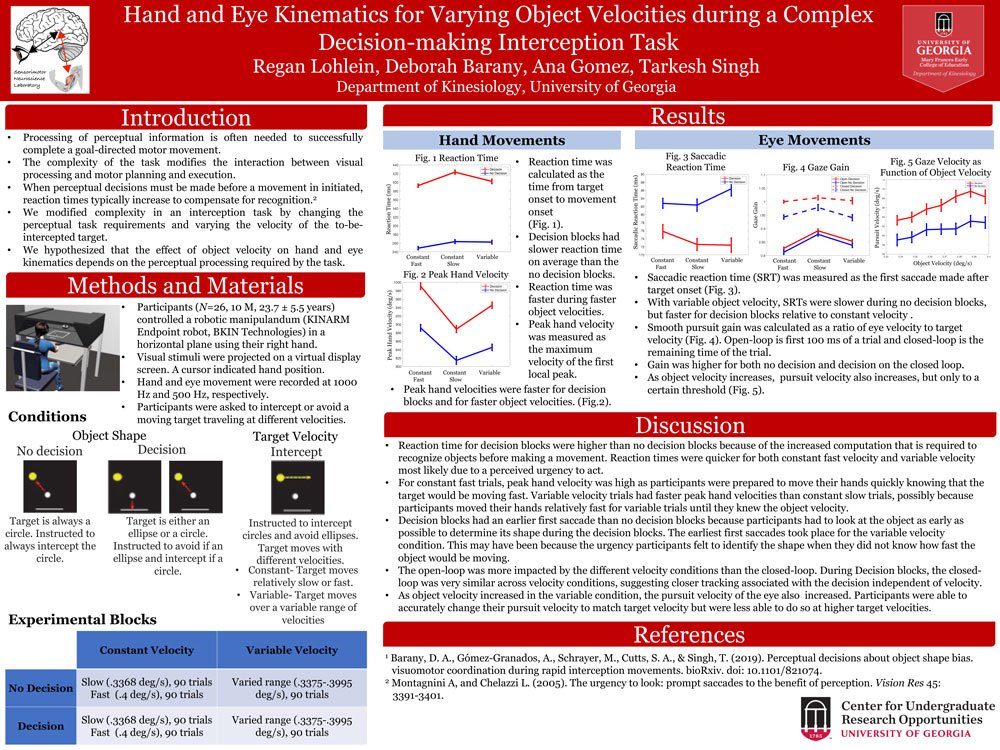
“I have learned much more than just knowledge in the field of neuroscience,” said Lohlein, whose research focused on perceptual decision-making in arm and eye movements. “Research taught me the importance of teamwork and collaboration when working on long projects. It also helped me with perseverance when I would become frustrated when I did not do something right the first time around.”
Andy Li, a junior financial planning major, said participating in the symposium changed his outlook on conducting research.
“I always imagined research as people with lab coats mixing liquids in test tubes,” said Li, whose research focused on financial capability and asset building among Generation Z. “Actually doing research gave me a whole different understanding of what research is all about.”

And while the transition to a virtual symposium from the traditional in-person event was new for both students and faculty members, Lohlein said there were a few benefits to it being online.
“It gave me the opportunity to browse more posters than I might have been able to in person, because I was able to do so at my own pace on my own time,” Lohlein said. “Also, a lot of my friends were able to use eLC to view my poster when they might not have gotten the chance otherwise.”
The CURO Symposium is sponsored by the Office of the President, the Office of the Senior Vice President for Academic Affairs and Provost, the Office of Instruction, the Office of Research, the UGA Libraries and the Honors Program.



